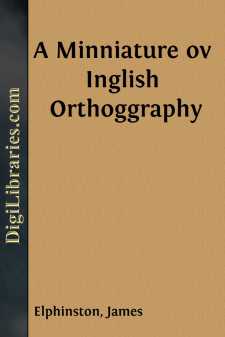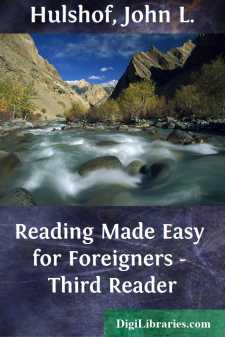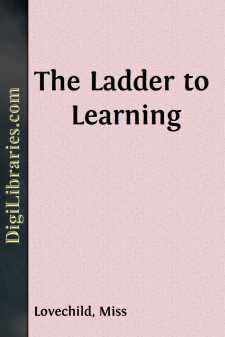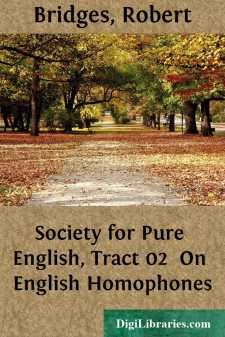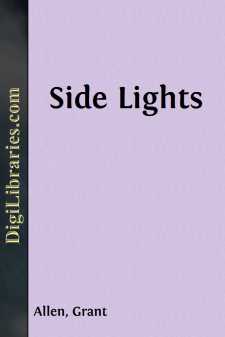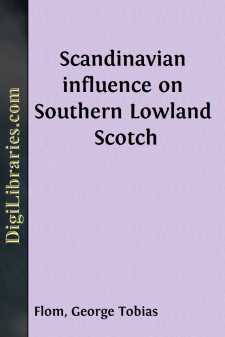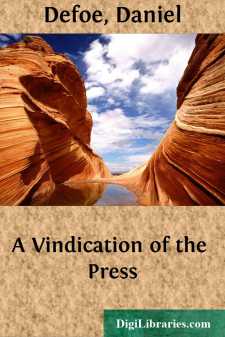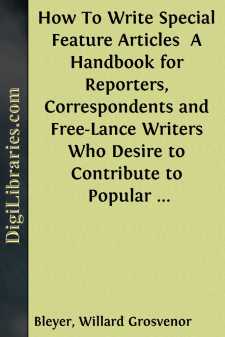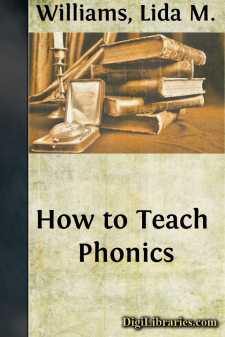Language Arts & Disciplines
Language Arts & Disciplines Books
Sort by:
by:
James Elphinston
1. INTRODUCTION. Hwen evvery oddher language, and at last our own, haz been reduced to' science; rendered accountabel to' natives, and accessibel to' straingers; hwence iz it, dhat our practice, growing daily more a contrast dhan an exemplificacion ov our theory, tempts ignorance to' speak, az blind habbit spels; raddher dhan to' dream ov spelling, az propriety exhibbits her...
more...
by:
John L. Hulshof
LESSON I FLAG DAY In this fair land of ours you can see the Stars and Stripes floating over every public school. This beautiful flag stands for our country. Every American is proud of his country's flag. It stands for all that is good and dear to an American. It stands for Liberty. It proclaims liberty to all. Every star stands for liberty. Every stripe stands for liberty. It stands for liberty of...
more...
by:
Miss Lovechild
THE LADDER TO LEARNING BY MISS LOVECHILD. MARKS' EDITION. 1852 AlbanyPublished by R. H. Pease516 Broadway a A stands for Ape, for Arthur, and Air. b B stands for Bullock, for Bird, and for Bear. c C stands for Cat, for Charles, and for cry. d D stands for Dog, for Daniel, and Dry. e E stands for Eagle, for Edward, and Eel. f F stands for Fish, for Francis, and Feel. g G stands for Goat, for Great,...
more...
by:
Robert Bridges
ENGLISH HOMOPHONES Definition of homophone. When two or more words different in origin and signification are pronounced alike, whether they are alike or not in their spelling, they are said to be homophonous, or homophones of each other. Such words if spoken without context are of ambiguous signification. Homophone is strictly a relative term, but it is convenient to use it absolutely, and to call any...
more...
by:
Grant Allen
I. LETTER-WRITERS. Since old Leisure died, we have come to think ourselves altogether too fine and too busy to cultivate the delightful art of correspondence. Dickens seems to have been almost the last man among us who gave his mind to letter-writing; and his letters contain some of his very best work, for he plunged into his subject with that high-spirited abandonment which we see in...
more...
PREFACE. This work aims primarily at giving a list of Scandinavian loanwords found in Scottish literature. The publications of the Scottish Text Society and Scotch works published by the Early English Text Society have been examined. To these have been added a number of other works to which I had access, principally Middle Scotch. Some words have been taken from works more recent—"Mansie...
more...
by:
Edwin Waugh
I came out at Haslingden town-end with my old acquaintance, "Rondle o'th Nab," better known by the name of "Sceawter," a moor-end farmer and cattle dealer. He was telling me a story about a cat that squinted, and grew very fat because—to use his own words—it "catched two mice at one go." When he had finished the tale, he stopped suddenly in the middle of the road, and...
more...
by:
Daniel Defoe
INTRODUCTION A Vindication of the Press is one of Defoe's most characteristic pamphlets and for this reason as well as for its rarity deserves reprinting. Besides the New York Public Library copy, here reproduced, I know of but one copy, which is in the Indiana University Library. Neither the Bodleian nor the British Museum has a copy. Like many items in the Defoe canon, this tract must be...
more...
CHAPTER I THE FIELD FOR SPECIAL ARTICLES Origin of Special Articles. The rise of popular magazines and of magazine sections of daily newspapers during the last thirty years has resulted in a type of writing known as the "special feature article." Such articles, presenting interesting and timely subjects in popular form, are designed to attract a class of readers that were not reached by the...
more...
by:
Lida M. Williams
LEARNING TO READ Every sound and pedagogical method of teaching reading must include two basic principles. 1. Reading must begin in the life of the child, with real thought content. Whether the thought unit be a word, a sentence, or a story, it must represent some idea or image that appeals to the child's interests and adjusts itself to his experience. 2. It must proceed with a mastery of not only...
more...


